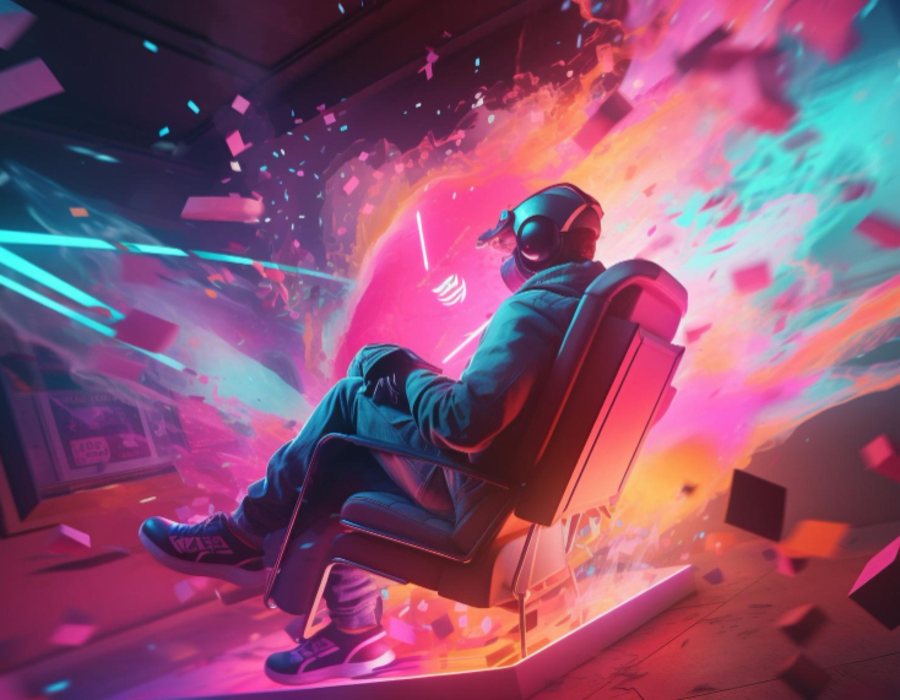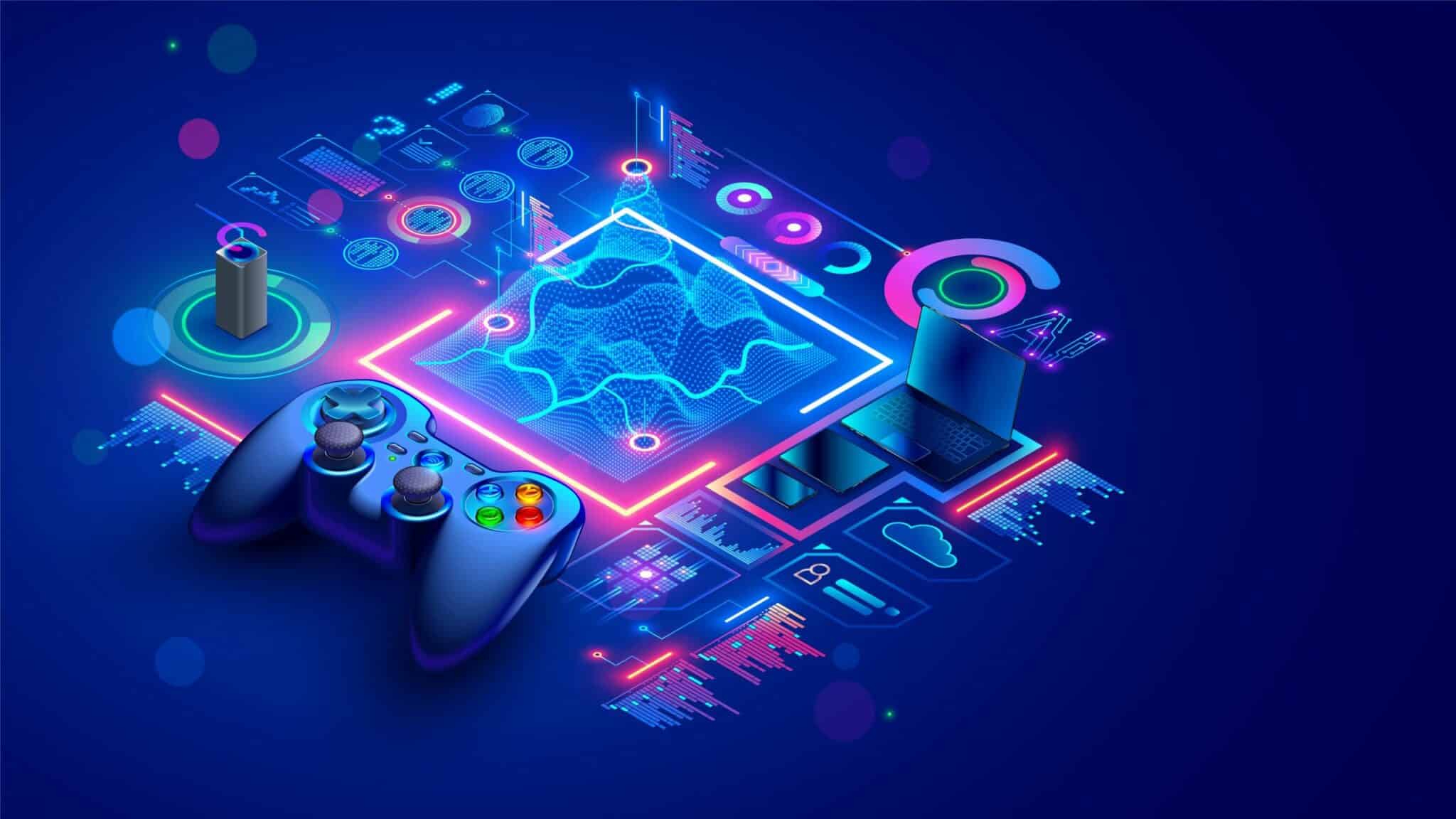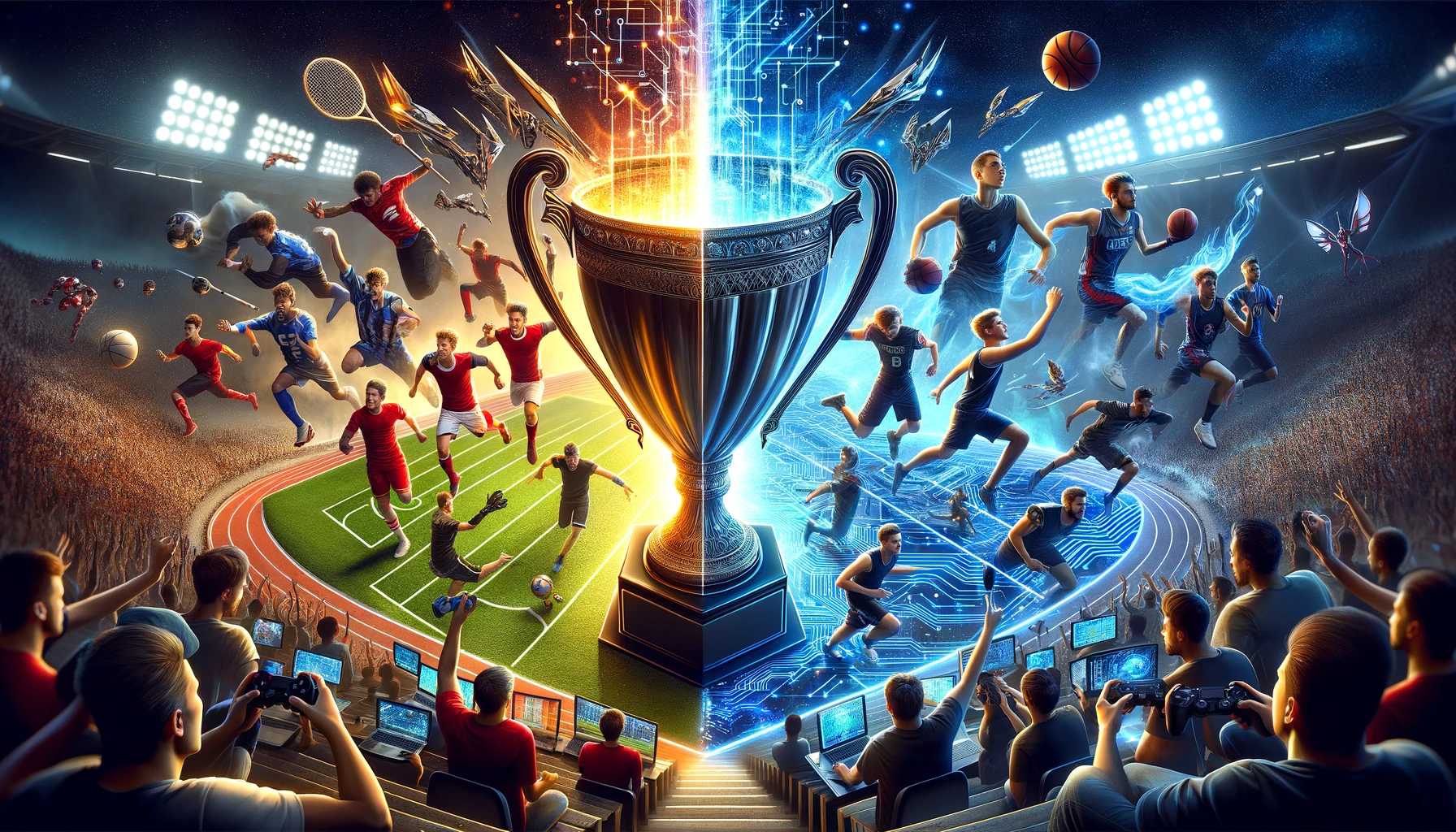The Next Big Thing in Gaming: Trends to Watch Out For
The gaming industry has always been at the forefront of innovation, continuously pushing the boundaries of technology and capturing the imagination of players worldwide. From the humble beginnings of arcade machines to the immersive worlds of virtual reality, gaming has evolved into a multibillion-dollar industry that transcends mere entertainment.
As we stand on the precipice of a new era in gaming, a myriad of trends are emerging, promising to revolutionize the way we play and experience games.
The Rise of Cloud Gaming
 One of the most significant trends shaping the future of gaming is cloud gaming. This technology allows gamers to stream games directly from remote servers, eliminating the need for expensive hardware or game downloads. With cloud gaming, players can access a vast library of games on any device, from smartphones to smart TVs, without worrying about compatibility issues or system requirements.
One of the most significant trends shaping the future of gaming is cloud gaming. This technology allows gamers to stream games directly from remote servers, eliminating the need for expensive hardware or game downloads. With cloud gaming, players can access a vast library of games on any device, from smartphones to smart TVs, without worrying about compatibility issues or system requirements.
Companies like Google, Microsoft, and Amazon have already entered the cloud gaming arena, offering subscription-based services that promise seamless gameplay across multiple devices. This shift towards cloud gaming has the potential to democratize the gaming experience, making it accessible to a broader audience and opening up new avenues for game developers to reach a global market.
The Metaverse and Virtual Worlds
The concept of a metaverse, a shared virtual space where people can interact, work, and play, has been a long-standing dream in the gaming and technology industries. With the advent of advanced technologies like virtual reality (VR) and augmented reality (AR), this dream is rapidly becoming a reality.
Companies like Meta (formerly Facebook) and Epic Games are leading the charge in creating immersive virtual worlds that blend gaming, social interactions, and commerce. These metaverses offer players the opportunity to explore vast digital landscapes, attend virtual events, and even own virtual real estate.
As the metaverse continues to evolve, we can expect to see an increasing convergence of gaming, social media, and e-commerce, creating new opportunities for revenue streams, brand collaborations, and unique gaming experiences.
The Integration of Blockchain and NFTs
 The gaming industry has long grappled with issues of digital ownership and asset transferability. However, the emergence of blockchain technology and non-fungible tokens (NFTs) is poised to revolutionize this aspect of gaming.
The gaming industry has long grappled with issues of digital ownership and asset transferability. However, the emergence of blockchain technology and non-fungible tokens (NFTs) is poised to revolutionize this aspect of gaming.
NFTs, unique digital assets that are verifiable and tradable on blockchain networks, have already gained traction in the gaming world. Game developers are exploring ways to integrate NFTs into their games, allowing players to truly own and trade in-game items, characters, and even virtual real estate.
This integration of blockchain and NFTs not only enhances the gaming experience but also creates new revenue streams for developers and players alike. Players can monetize their in-game assets by trading or selling them on decentralized marketplaces, while developers can generate revenue through NFT sales and royalties.
The Rise of Esports and Competitive Gaming
 Esports, the competitive side of gaming, has experienced a meteoric rise in popularity over the past decade. What once started as small, local tournaments has now grown into a global phenomenon, with professional players competing for million-dollar prize pools and attracting massive viewership.
Esports, the competitive side of gaming, has experienced a meteoric rise in popularity over the past decade. What once started as small, local tournaments has now grown into a global phenomenon, with professional players competing for million-dollar prize pools and attracting massive viewership.
As esports continues to gain mainstream recognition, we can expect to see an influx of investment from major brands, broadcasters, and sports organizations. This will not only elevate the production value and professionalism of esports events but also create new opportunities for sponsorships, merchandising, and broadcasting rights.
Moreover, the rise of esports is likely to drive innovation in gaming technology, with developers focused on creating games optimized for competitive play, featuring advanced mechanics, spectator modes, and robust anti-cheat systems.
The Adoption of Artificial Intelligence and Machine Learning
Artificial Intelligence (AI) and Machine Learning (ML) are revolutionizing various industries, and gaming is no exception. These technologies are already being utilized in game development, enhancing aspects such as procedural generation, character behavior, and dynamic difficulty adjustment.
As AI and ML continue to advance, we can expect to see even more immersive and adaptive gaming experiences. Games may feature intelligent non-player characters (NPCs) that can learn and adapt to individual player behavior, creating unique and personalized gameplay experiences.
Additionally, AI and ML can be leveraged to improve game balancing, provide personalized recommendations, and even assist in game design and development processes, streamlining the creation of complex and engaging games.
The Advent of Portable and Wearable Gaming
The gaming industry has always been driven by the desire for portability and convenience. As technology continues to evolve, we are witnessing the rise of portable and wearable gaming devices that offer a seamless gaming experience on the go.
From powerful handheld consoles to augmented reality (AR) glasses and smartwatches, the future of gaming promises to be more mobile and integrated into our daily lives than ever before. These devices not only cater to traditional gaming but also open up new possibilities for location-based and augmented reality gaming experiences.
The integration of gaming into wearable devices also presents opportunities for innovative applications in areas such as fitness, education, and even workplace productivity, blurring the lines between gaming and other aspects of our lives.
The Future of Gaming
As we look towards the future of gaming, one thing is clear: the industry is not just about entertainment anymore. Gaming is rapidly becoming a platform for social connections, self-expression, and immersive experiences that transcend the boundaries of traditional media.
With the rise of virtual worlds and the metaverse, gaming will become a canvas for creativity, where players can not only participate in games but also shape and create their own virtual environments and communities.
Moreover, the integration of emerging technologies like AI, blockchain, and augmented reality will further blur the lines between the digital and physical worlds, creating unique and unparalleled gaming experiences that seamlessly blend the virtual and real.
Conclusion
The gaming industry has always been a driving force behind technological innovation, and the trends we are witnessing today are poised to revolutionize the way we play and experience games. From cloud gaming and the metaverse to the integration of blockchain and NFTs, the future of gaming promises to be more immersive, interactive, and socially connected than ever before.
As the industry continues to evolve, we can expect to see new and exciting developments that push the boundaries of what we thought possible in gaming. Whether you're a casual gamer or a hardcore enthusiast, the future of gaming is sure to captivate and inspire, offering experiences that will redefine the very concept of play.














![[LIVE] Engage2Earn: McEwen boost for Rob Mitchell](https://cdn.bulbapp.io/frontend/images/c798d46f-d3b8-4a66-bf48-7e1ef50b4338/1)















